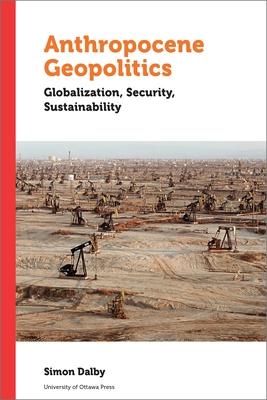With the new geological age known as the Anthropocene heralding dramatic disruptions in the earth system, geopolitics needs to be fundamentally reconsidered to deal with these new circumstances. Planetary boundaries and ecological change are now the key contextualization for considering future global political arrangements.
We now find ourselves in a new geological age: the Anthropocene. The climate is changing and species are disappearing at a rate not seen since Earth's major extinctions. The rapid, large-scale changes caused by fossil-fuel powered globalization increasingly threaten societies in new, unforeseen ways. But most security policies continue to be built on notions that look backward to a time when geopolitical threats derived mainly from the rivalries of states with fixed boundaries. Instead, Anthropocene Geopolitics shows that security policy must look forward to quickly shape a sustainable world no longer dependent on fossil fuels. A future of long-term peace and geopolitical security depends on keeping the earth in conditions roughly similar to those we have known throughout history. Minimizing disruptions that would further put civilization at risk of extinction urgently requires policies that reflect new Anthropocene "planetary boundaries." Published in English.
Book
Anthropocene Geopolitics: Globalization, Security, Sustainability
by Simon Dalby
(Write a Review)
Paperback
$29.95
With the new geological age known as the Anthropocene heralding dramatic disruptions in the earth system, geopolitics needs to be fundamentally reconsidered to deal with these new circumstances. Planetary boundaries and ecological change are now the key contextualization for considering future global political arrangements.
We now find ourselves in a new geological age: the Anthropocene. The climate is changing and species are disappearing at a rate not seen since Earth's major extinctions. The rapid, large-scale changes caused by fossil-fuel powered globalization increasingly threaten societies in new, unforeseen ways. But most security policies continue to be built on notions that look backward to a time when geopolitical threats derived mainly from the rivalries of states with fixed boundaries. Instead, Anthropocene Geopolitics shows that security policy must look forward to quickly shape a sustainable world no longer dependent on fossil fuels. A future of long-term peace and geopolitical security depends on keeping the earth in conditions roughly similar to those we have known throughout history. Minimizing disruptions that would further put civilization at risk of extinction urgently requires policies that reflect new Anthropocene "planetary boundaries." Published in English.Paperback
$29.95